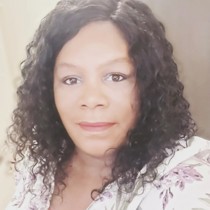For me, it started with National Pet Week 2020.
George Floyd had just been murdered. The Local Authority where I worked had not sent out an email acknowledging his murder, but was able to send an all-user email asking people to send in pictures of their loved pets. On reflection, I want to believe that this was an oversight in terms of timing, but my opinion was that they couldn’t have got it more wrong.
How did I feel? Angry. Upset. Confused. But then acceptance. Acceptance that this was an expected response to matters which highlight inequalities up and down the country. More importantly, I thought that since this is the expected response, it might evoke some discussion amongst colleagues and friends but that was as far as it would go. Boy, was I wrong…
As a social worker, addressing inequalities is at the forefront of what we do. The legal frameworks and policies within which we work all state the importance of safeguarding; striving for fairness; and positive opportunity for the children within the communities in which we serve. We see the benefits when this is achieved.
Since George Floyd’s murder there has been a positive shift in both public and private sector organisations in addressing inequalities and recognising the importance of anti-racist practices. As this has developed, more conversations and discussions are taking place.
So, taking this into account, do we strive as much as we should when it comes to promoting anti-racist practice? Does it matter that our leadership teams are not diverse enough to reflect the communities we serve? We know it does matter. As my Grandma would say – ‘the maths is not mathing’.
Yet the above won’t come as a surprise to most of you. For years, there have been a number of papers which highlight the lack of diversity in leadership roles and the impact this has on skill, motivation and progression within our workforce.
I decided that I needed to take action. To be part of the solution to address the inequalities and, in particular, to support the Local Authority to address the issue of not doing enough about inequalities.
In talking to my peers and some of my senior leaders I learnt the following:
- My Black and Brown colleagues no longer wanted to discuss their experiences, as nothing appears to change.
- My white colleagues were scared to discuss racism and differences for fear of getting it wrong.
When it came to training available around anti-racist practice I learnt:
- Training was around inequalities, not anti-racism specifically, and a lot was left open to participant interpretation.
- Training was mandatory and online which left a question as to how engaged the participant really was or could be.
- Face-to-face diversity training was for managers only – meaning the onus was on the manager to be responsible for their teams’ learning around the subject.
- There is often an assumption that everybody understands that racism is still prevalent and lives within our organisations.
Taking the above (and more) into account, it was important to set up an equality forum. The Local Authority had an Equality, Diversity and Inclusivity Board which was attended by senior leaders and some frontline staff, but after the pandemic happened, there was often not enough time to discuss specific matters relating to anti-racist practices. The new equality forum was for frontline staff members from different cultures and professions to share their experiences; learn about anti-racist practice, injustice, diverse matters and other protective groups; and to create a library and resource centre. I can happily say that a year on, it has transformed: it’s now a 30-strong membership and going really well.
I developed training around cultural competency and anti-racist practice for leaders, managers and frontline staff within the organisation. I was able to share my narrative and the difficulties that I and some of my colleagues had faced – and also those faced by my children and those in our community. Again, this highlighted to me, and to the forum, that some of the experiences that come with being a Black woman had never been considered by some of those in attendance.
I put myself forward as an advocate for change. I highlighted that as a Black woman, in 18 years (with the exception of my first social care manager) I had never had a Black manager. I undertook training to develop my knowledge in leadership and supervision, in particular the Research in Practice Practice Supervisor Development Programme. This assisted with developing my knowledge as a Black leader and mentor for colleagues wanting someone who looked like them to provide support.
Looking back, I feel that I was in the right place to be able to tackle the inequalities I and others faced. My approach is, and has always been, that ‘from the bottom up’ is just as important as the ‘top down’ when it comes to inclusivity.
If I can share experiences and support change within an organisation then I will continue to do so.
. . .
Suggested reading (open access)
- Leading in Colour: The fierce urgency of now. Meara Spillet, Rose Durban, Rosemary Campbell-Stephens MBE. Aimed at white leaders across the public sector supporting cultural competence and a fairer workplace.
- The Colour of Power 2020: Green Park. Visualising what power looks like in racial and gender terms.
- Anti-racism in social work: Wayne Reid. In conversation and links to further resources.
Research in Practice: Practice Supervisor Development Programme: Many resources on equity, diversity and inclusion in supervision and leadership (open access):
- Resources for Managers of Practice Supervisors: Addressing barriers to the progression of black and minority ethnic social workers to senior leadership roles
- Resources for Managers of Practice Supervisors: Developing a community of practice in your organisation
- Resources and Tools: Developing cultural competence
- Resources and Tools: Social GGRRAAACCEEESSS and the LUUUTT model
- Leading and influencing others in your organisation - principally Decolonisation: honest conversations about white supremacy.




